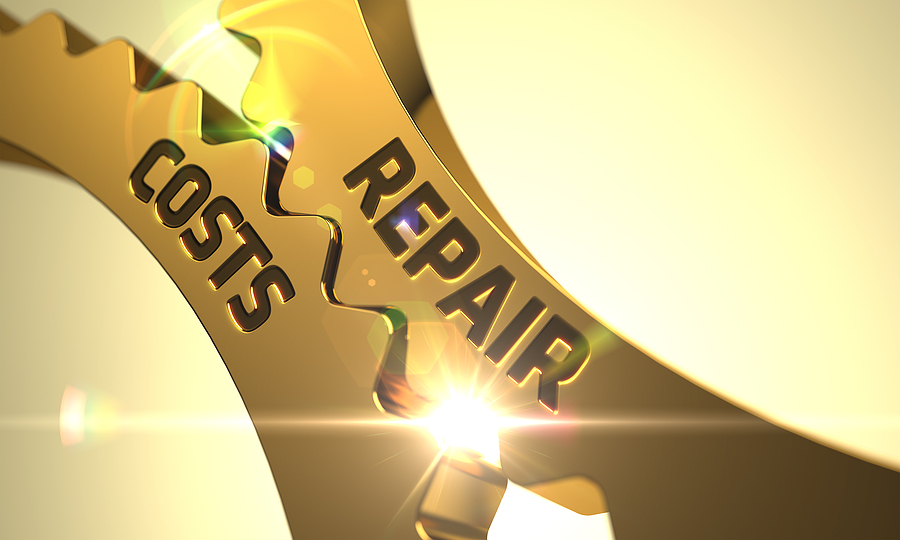Owning a vehicle is a substantial commitment—not only in terms of the money spent purchasing your set of wheels but also in maintaining it. Car repairs can often feel like a financial black hole, where the costs mysteriously skyrocket, leaving budget-conscious drivers and car owners grappling with bills that, at times, seem to surpass the benefits.
Identifying whether you’re paying too much and understanding your options when costs overwhelm the value of your car are critical. In this piece, we’ll explore the real cost of overpriced car repairs and how to navigate this often daunting aspect of vehicle ownership.

Understanding Average Repair Costs
Before heading to a mechanic, it’s important to have a ballpark figure of what certain repairs should cost. For instance, catalytic converters and engines are known to be expensive fixes. As of my knowledge cutoff date, replacing a catalytic converter can cost anywhere from $750 to $2500, depending on the vehicle model and the price of the parts. An engine replacement is even more substantial, typically ranging between $3000 and $4000—and can climb even higher for high-end vehicles.
When Repair Costs Exceed Vehicle Value
There comes a point where it’s worth considering the adage of not throwing good money after bad. If the cost to repair your car exceeds its fair market value, you may be teetering on the brink of designating your car a “total loss.” This term is often associated with insurance claims where the cost to safely repair a vehicle overshadows the actual cash value (ACV) of the car itself.
Dealing with a Total Loss Vehicle
Understanding total loss vehicles and their ACV is crucial if you find yourself in this situation. The ACV—is the amount an insurance company will pay out if your vehicle is declared a total loss. This value considers depreciation and your car’s condition at the time of the damage.
However, what if you do not have any car insurance and your car is considered a total loss? You’re shouldering the weight of a decision without the safety net of an insurer to offer a payout for your car’s fair market value. In these cases, you might look into alternative avenues, such as selling your totaled car to an auto salvage yard in Indianapolis. Some salvage yards offer cash on the spot for total loss vehicles, providing you an escape from escalating repair costs and giving your car a second life in the form of recycled parts.
Practical Steps to Avoid Overpaying for Car Repairs
“Research and compare repair quotes to avoid overpaying,” advises John Doe, a seasoned auto mechanic with 20 years of experience. Here are actionable steps based on expert advice:
Get Multiple Estimates: Before you commit to any costly repair, shop around. Getting several quotes can give you leverage and a clearer sense of what’s fair.
Understand Your Car’s Value: Knowing your car’s worth can help you decide whether a repair is financially justifiable. Tools like Kelley Blue Book can provide insight into your car’s value.
Consider the Age and Condition of Your Car: If your vehicle is older or has a history of problems, investing in significant repairs might not be the best economic choice.
DIY When Possible: Some minor repairs can be done at home with basic tools and knowledge. However, know your limits to avoid further damage.
Ask for Old Parts: Request to see the old parts when they’re replaced. This can prevent you from paying for repairs that weren’t actually performed.
Negotiate: Don’t be afraid to haggle the price, especially if you’re well-informed about your car’s condition and the average cost of repairs.
Preventative Maintenance: Regular upkeep can prevent larger, more expensive issues from developing. Keep up with your vehicle’s maintenance schedule to avoid major repairs down the road.
If You’re Uninsured: Should your uninsured car face the grim fate of becoming a total loss, reach out to salvage yards or consider parting out valuable components yourself.
In Summary
It’s clear that understanding your rights, your car’s value, and the average costs of repairs is fundamental in the fight against overpricing. Armed with knowledge, vigilance, and a willingness to question—and challenge—costs presented, you stand a better chance at navigating car repairs with financial wisdom and perhaps save significant sums in the process.
Unable to afford an exorbitant auto repair bill? Is the cost of repairing your vehicle higher than its market value for resale? If so, Benjamin’s Junk Cars will buy your broken-down vehicle for cash on the spot so you can put some more money back into your wallet! Contact us at 317-218-7133 today to learn more and to receive a free over-the-phone offer!
Related Posts:
Is it Expensive to Replace a Catalytic Converter?
The Top 3 Most Expensive Auto Repairs
How to Deal With an Expensive Car Repair You Can’t Afford
